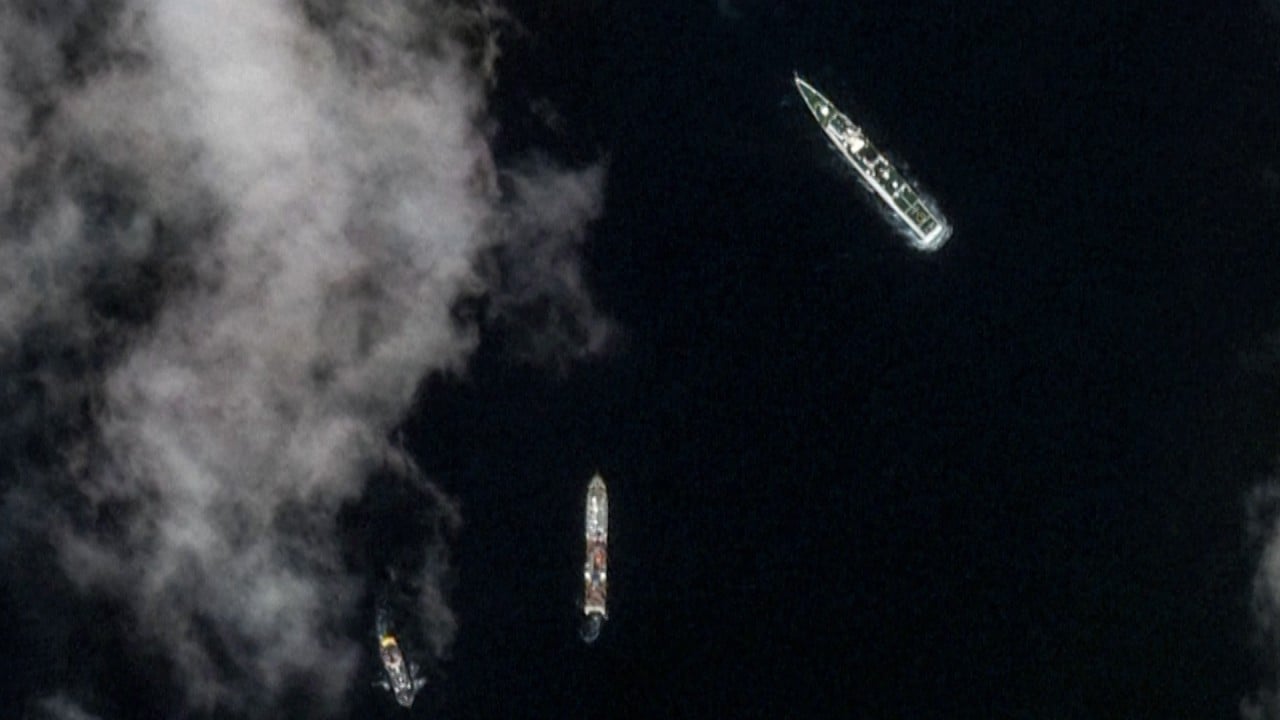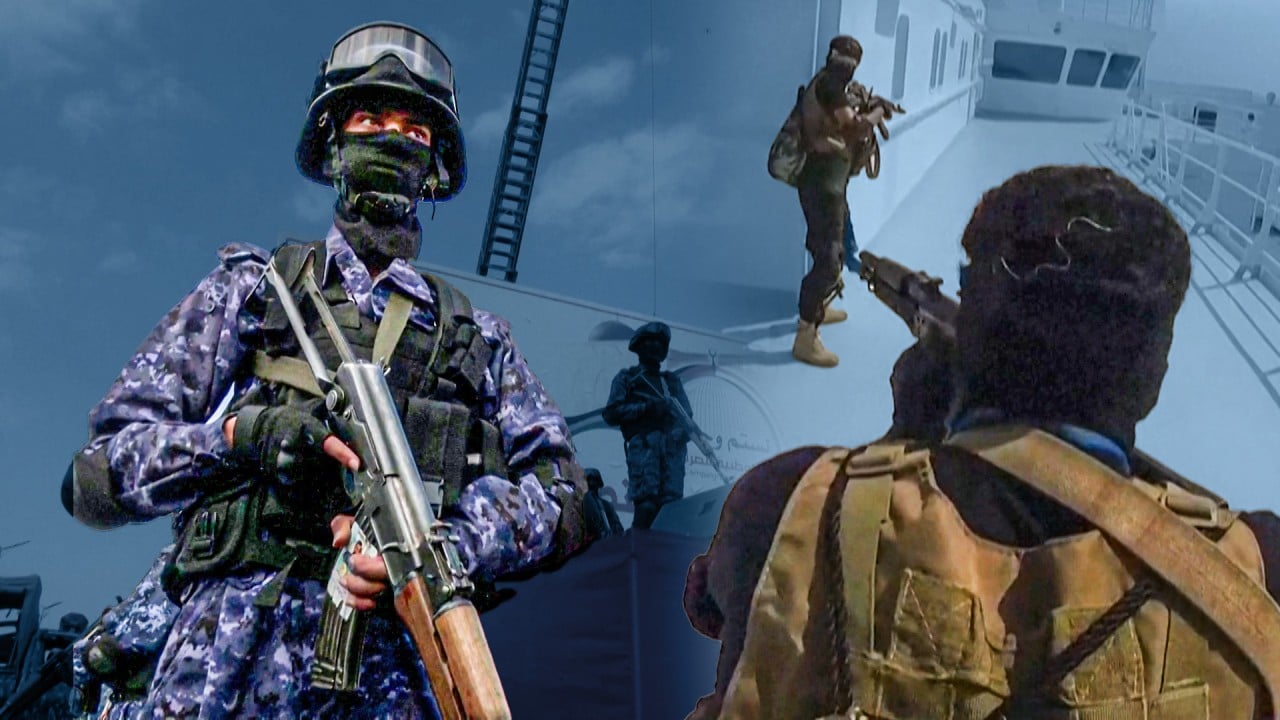It is completely normal in a democracy with free media as in Germany to have a free debate on whether the trip was successful or not.
Why did the chancellor pick Chongqing as his first stop?
The visit was an occasion to look at contemporary city management, such as how to govern a metropolis, organise transport and monitor the water quality.
The chancellor also visited a production site of the German manufacturer Bosch in Chongqing which produces hydrogen fuel cell system for trucks. It is symbolic of our intention to work with China in countering today’s global challenges, such as bringing down emissions in the transport sector.
China and the European Union share different perspectives on overcapacity and have had heated exchanges on the issue. What is your take? Do you see any middle ground? What would you want to see China do to address its partners’ concerns?
China offers subsidies to certain companies and industries, including financial support at low interest rates. To make things worse, this often leads to overcapacity – companies are not profitable but continue to stay in business instead of going bankrupt, which undermines normal competition.
Overcapacity is the consequence of a missing level playing field. And that must change. Our conversation should be about how we can have equal, fair and transparent conditions.
The chancellor mentioned that very clearly during his visit and suggested to address such issues in the context of the World Trade Organization because it will ultimately become a global issue.
The European Union has taken a hardline approach against China by launching several investigations into Chinese new energy products.
Meanwhile, Germany and China promised to cooperate on clean energy, such as developing automated driving, and Berlin said it will scale back restrictions for China’s investment.
Is there any inconsistency? If the EU is getting tough on China, then where is the room for Germany to cooperate with China?
The European single market is an open market. It works under market conditions. It is totally transparent and everybody can look up all of the regulations, but this is not equally true all over the world. At a time where we observe additional restrictions and distortions for trade, it is also necessary for us Europeans to be able to protect our own market.
During the chancellor’s visit, our ministries for Digital and Transport, and for Economic Affairs and Climate Action signed an MOU with the Ministry of Industry and Information Technology.
When we talk about autonomous and connected driving, we have to think about the standards for the auto driving system, which involve safety standards, data transfer, data exchange on accidents and risk assessment.
That is a field where Germany wants to engage with China in order to find good and safe solutions for automated mobility in the future.
First of all, it is always a pleasure to go to the foreign ministry and talk to my Chinese colleagues because it offers me an opportunity to share our thinking and approach, and to have a dialogue with them. So I used this opportunity to make absolutely clear that Germany does not tolerate espionage, regardless of which country is involved.
Secondly, we protect our democracy and our state within the constitutional framework, which means through investigations of our independent judiciary. In this case, the federal prosecutor of Germany is the one initiating the arrests. The court then authorised the warrants. Now we will have a judicial procedure. In the end, it will be a court deciding about these individual cases.
What is the importance of the South China Sea to Germany and why is Berlin taking a position, particularly the plan to send warships? Would it have a potentially negative impact on the relationship with China?
Germany, as well as our partners, is deeply concerned about tensions in the South China Sea and East China Sea. It is very important that everybody respects the United Nations Convention on the Law of the Seas (UNCLOS) and that we don’t see any unilateral attempts to change the status quo by force.
The issue matters to maritime shipping and our economic relations. About half of world trade goes through the South China Sea. A lot of it also goes through the Taiwan Strait, through the Malacca Strait.
That is our lifeline. It is clear that for an economy like Germany, it would be a big concern if we had any stability issues where maritime shipping could no longer freely pass.
We want to reach out to partners in the region, engage with them on issues of maritime domain awareness, coastguard activities and disaster assistance. That is the intention of this deployment.
We see this as symbol of our interest in making a contribution to stability in the region, but also underline the importance of freedom of navigation and free maritime shipping routes throughout this region.
China says there is no evidence that it is trying to stop other countries’ ships passing through the South China Sea or Taiwan Strait, and that freedom of navigation, particularly innocent passage, has always been observed.
Beijing thinks foreign countries’ concerns are a pretext. Why would other nations step in between the Philippines and China’s sovereignty dispute?
What we demand is that everybody respects the law of the sea. And in this regard, I would say that China’s approach, its close encounters and dangerous interaction with Philippine ships, are highly problematic.
And if you say that the Chinese view that as a sovereign right – well, but the Philippine view is exactly the opposite.
What we are asking for is to find solutions which are in line with international law. So all parties should respect the UNCLOS decision of 2016 and find an arrangement through agreement, not through military or other aggressive means.
But many think that China is still developing, with a number of poor regions, and the message was received differently there, as an unreasonable demand from a well-developed Western country like Germany.
How can the two countries bridge these very different interpretations and work together to combat global warming?
That was also confirmed during the intergovernmental consultations last year in Berlin. We have created Climate and Transformation Dialogue. We will see the first, physical official meeting of this dialogue very soon here in Beijing when our minister for Economic Affairs and Climate Action will be visiting.
We are trying to find ways to cooperate on issues including the Loss and Damage fund, the Green Climate Fund, the adaptation fund, and biodiversity in which China has played a very important and constructive role.
We now appeal to China to contribute more. China is now the largest emitter of greenhouse gases. In terms of total emission since the late 18th century it is the second largest and on its way to surpass the US.
The consequences of climate changes are being felt globally. It may take a big toll such as on small islands in the Pacific, which may disappear due to the rise of the sea level.
China is moving up the value chain and is also trying to develop its own high-end products. Does Germany see this as competition, a threat or opportunities for cooperation?
China has moved beyond the stage of a developing country. It is normal that we get new competitors.
When I talk to German companies in the car industry, they say that fair competition is healthy, leads to innovation and that they are ready to take on this challenge. They can compete and want to compete.
German companies will again prove that they can offer high quality products. It is up to the consumer to decide what to buy.
In principle, Germany’s prosperity is built on a free and open world market
At the same time, which was very evident when Chancellor Scholz and Premier Li Qiang met the advisory China-German Business Council, German companies urged for a level playing field to ensure fair competition.
This has many elements: as we move into the green transition, trying to get to sustainable mobility and protecting the environment, it relates to which standards we are using.
Germany has, for example, very high environmental and social standards that our industry needs to comply with, while the standards are much lower in other countries. As a result, we have an imbalance that we need to look at.
In principle, Germany’s prosperity is built on a free and open world market. The demand for technology, especially in this green transformation, will be so big that there is room for many players from different countries to compete.
While Germany and China are cooperating on standards in new industries such as autonomous and connected driving, the US and EU are also working on standards in the digital arena. How will Germany balance its position between China and the US?
Our ambition should be to work out a set of standards, take it to an international or multinational body and aim at an agreement by all. It is necessary to build mutual confidence and agreement in order to set up standards which are acceptable to all sides globally.
It is key to find common ground between all of these different actors in order to move forward. I think the debate about space and space governance is a similar one. So we have many fields where it is no longer sufficient to regulate the local market, but we need to think about the common standards for all.
Germany has been very committed to finding the common ground for these questions. We just think that it is essential to talk to China and our other partners as well.
What role do you think China can play in this, and what kind of message are you hoping it will convey to Putin? What other realistic goals and solutions could China bring to the table?
We are still waiting for China, as a permanent member of the Security Council, to condemn this war of aggression, which clearly violates the UN Charter.
As a large country with strategic partnership with Russia, and also as a member of the Security Council, clearly there is weight and leverage that China can bring into this discussion.
Economic interaction between China and Russia is also of great concern to us, as we do see critical components and dual use components from China go into Russian military production.
It was also very important to reaffirm the opposition to the threat or use of nuclear weapons, and also oppose attacks against civilian nuclear facilities. We also want to jointly support global food security, protect and promote export of grain from Ukraine.
Everybody should respect humanitarian law and protect the civilian population as we see casualties in Ukraine every day, including women and children.
It is our goal to promote and find a way towards a peaceful Middle East where Israel and the Palestinians could coexist peacefully.
Germany has strongly condemned the Hamas attack of October 7 and atrocities that we’ve seen. To release the hostages is a key and concrete objective right now.
We support the role of the United Nations and both countries call for implementation of Security Council Resolution 2728 in the hope we can get to a ceasefire and release of hostages.
In the long term, we believe that the two-state solution is the only viable solution for the region. So we will work towards that.
What role do you expect China can play in the Red Sea to stop the Houthi attacks?
China has some contact with the Houthis, which would give a starting point to call on the Houthis to stop attacks.
The European Union has launched the EU Naval Force Operation Aspides in the Gulf of Aden. We have also conducted an EU-led anti-piracy mission in the Red Sea. China has a naval base in Djibouti.
I think the situation calls for some coordination, such as exchanging information, assisting each other in terms of protecting the merchant ships.
People-to-people exchanges were disrupted by the Covid-19 pandemic. Are German students coming back to China? And, with many Chinese parents and students who want to study STEM subjects overseas concerned about restrictions or discrimination, is there any message to those interested in going to Germany?
We have never barred Chinese students from coming. So if they didn’t come, it was not because we had any restrictions. The number of Chinese students in Germany has now recovered to the pre-Covid levels. We are issuing lots of visas again. Germany is still very attractive for Chinese students.
However, it is still very difficult the other way around. So far, the number of German students in China is still quite low. Currently, there are around 1,800 German students enrolled at Chinese universities. Before Covid, there were around 8,000.
There are several reasons for this. China has been basically off-limits for three years, and people are still wondering whether it is possible now to go.
There are also some issues such as how to survive as a newcomer to China if one does not have WeChat, cannot use international credit cards, and so on – so there are very practical obstacles for foreigners to come and live in China.
And I should not hide there is a critical discussion in Germany about China with many questions. A major one is China’s position regarding the Russian invasion of Ukraine.
For Germans and Europeans, Russia’s aggression is an existential threat
For Germans and Europeans, Russia’s aggression is an existential threat. This is a nuclear power next to us that just invaded its neighbour. It has really shaken up people. The world is no longer the same after the invasion.
But we see China standing side by side with Russia, not having condemned the invasion, while trade between China and Russia is growing.
The situation casts doubt on China’s relation with Germany and Europe. The German public wonders about what this actually means, and if this is conducive to a decision about going to China and studying here.
Exchanges at a higher level probably can help to clarify each other’s position. The last time President Xi visited Germany was 11 years ago. Are there any discussions about a possible visit in the near future?
What’s currently on the agenda is several ministerial visits. We now see bilateral dialogues and delegations going in both directions and we have a much more normal situation this year. Next year we will have the intergovernmental consultations in China. So it means that Chancellor Scholz will come to China for these consultations.
What opportunities do you see for the two countries to cooperate on political issues at multinational platforms?
It is very important to work jointly to achieve the Paris Agreement goals. Both countries’ climate envoys coordinated very closely at Cop28 and will do so for the upcoming Cop29.
Germany is the co-coordinator for the negotiations for the United Nations Summit for the Future in September. We need to engage with China to reach a consensus for the summit.
Germany has, together with some others, called for the reform of the UN Security Council and other institutions for quite a long time because the Security Council does not reflect today’s world. It was created in 1945 under very special conditions and it needs to be reformed.
We have also supported several initiatives to restrict the veto powers. There are big questions of how to do the reform. A UN where the key body is not representative of today’s world has limited sway and limited credibility.
We also insist that everything that was achieved so far should be preserved, such as the Human Rights Conventions, the international tribunals and other bodies of the United Nations that deal with different issues.
We want a reform which makes these institutions better, enhances possibilities for everyone on this planet to enjoy their rights, including social rights, development rights and political rights. We want a positive momentum as a trademark or quality sign for such a reform.




